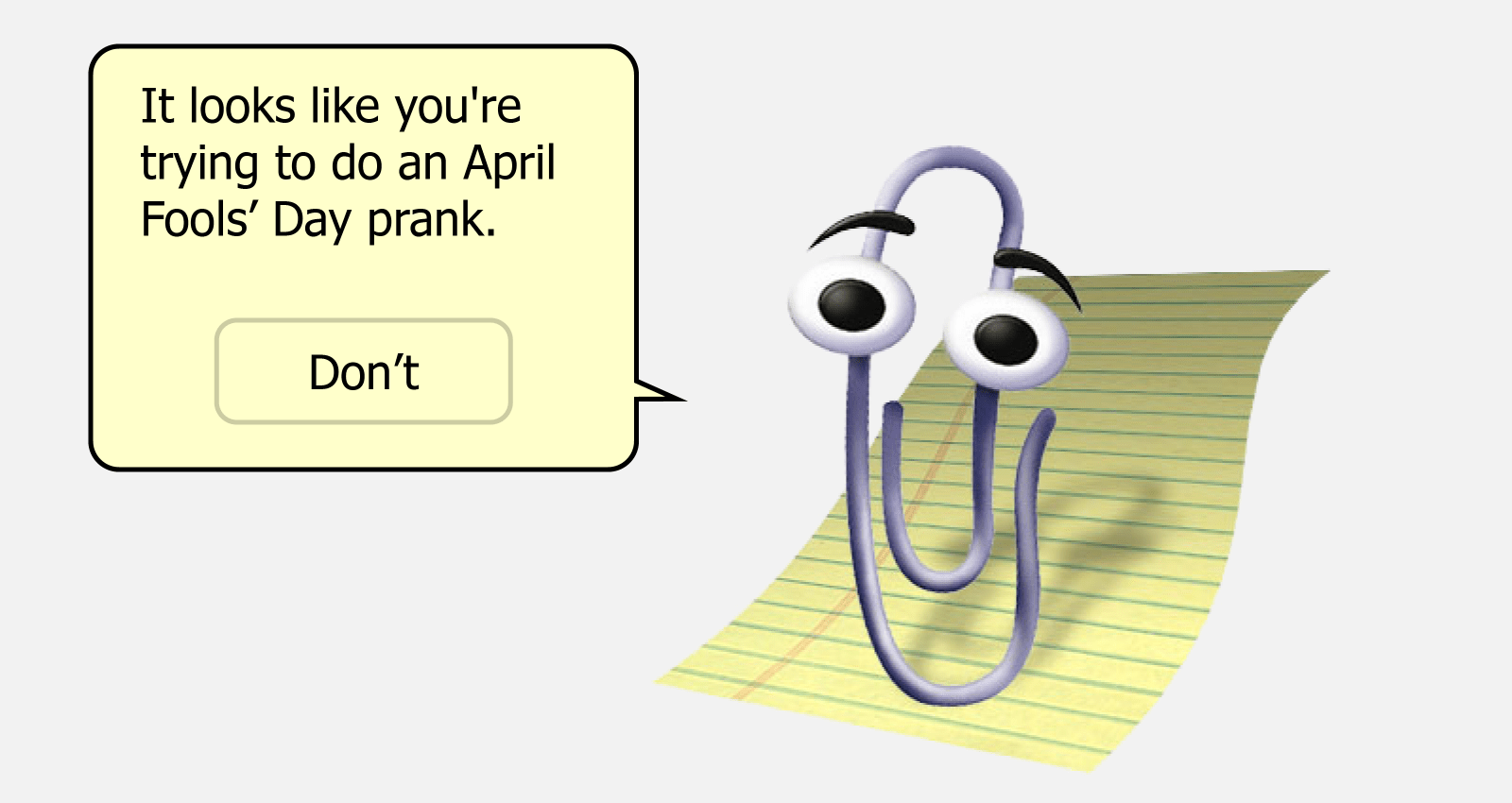
Those annoying April Fool’s Day jokes and hoaxes that technology giants share every year are anything but funny. Microsoft, of all companies, has now taken a firm stand against creating its own corporate pranks in an amusing memo to all employees.
Not only are those April Fool’s Day stunts and hoaxes stupid, annoying and mostly just plain terrible and not funny at all but can backfire by starting “an unwanted news cycle,” Microsoft’s marketing chief Chris Capossela wrote in the memo.
“I appreciate that people may have devoted time and resources to these activities, but I believe we have more to lose than gain by attempting to be funny on this one day,” Capossela wrote.
Here’s the message in its entirety, via The Verge:
Hey everyone,
It’s that time of year when tech companies try to show their creativity with April Fool’s Day stunts. Sometimes the outcomes are amusing and sometimes they’re not. Either way, data tells us these stunts have limited positive impact and can actually result in unwanted news cycles.
Considering the headwinds the tech industry is facing today, I’m asking all teams at Microsoft to not do any public-facing April Fool’s Day stunts. I appreciate that people may have devoted time and resources to these activities, but I believe we have more to lose than gain by attempting to be funny on this one day.
Please forward to your teams and internal partners to ensure people are aware of the ask to stand down on external April Fool’s Day activities.
April Fool’s Day follows predictable rules, according to Alex Boese who is the chief curator of the Museum of Hoaxes website.
Here’s how to spot the obvious pranks, via The Verge:
- Is it before noon? Traditionally the pranks are carried out then.
- Have they hoaxed before? If a company has run an April Fool’s prank before, they likely will again. NPR, Google and BMW are known for their hoaxes.
- Has this prank been played before? Sometimes, the old pranks win out, like a rock radio station telling its listeners it’s switching formats to classical. Don’t kick any hats and be skeptical about money lying in the street.
- What name is that? Hoaxers will often include a version of April Fool in the joke—a spokesman named Lirpa Loof, for instance, or Avril Folle.
- Does this sound like a tall tale? The classic April Fool’s prank has a Baron Munchausen-like quality. Though tall tales are out of fashion, they do make a comeback once a year. The 1980 BBC prank report of Big Ben going digital is a prime example.
Now that Microsoft is officially not participating in these pranks, Google, Amazon et al should follow suit because April Fool’s Day is a 500-year tradition that we can live without, really.
Here’s one Fool’s Day prank that I do happen to like.
Fun fact: a certain technology company has never done an April Fool’s joke. Can you name it? And while we’re at it, don’t you just hate April Fool’s Day?
Yes, meet us in comments!






Recent Comments